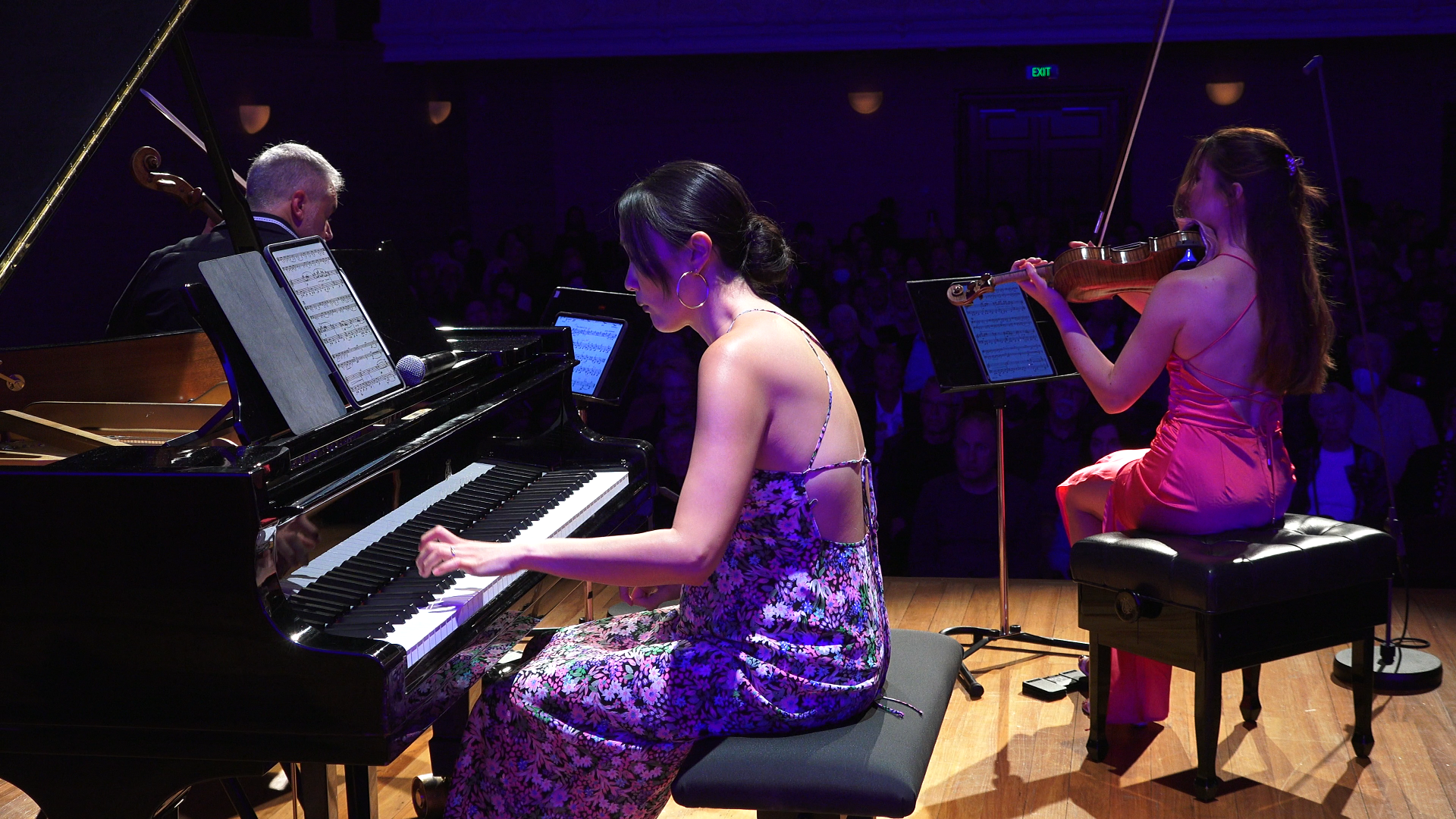Canterbury born, internationally renowned tenor Simon O’Neill combined with the NZ Trio to terrific effect in Christchurch on Thursday night.
. . .The Mahler had it all – deep longing, short-lived joy, drama and a rather unsettling calm to finish. O’Neill’s immaculate singing told the story perfectly, interpreting every nuance and emotion, while the trio brought a whole new flavour to the piece, helped by Young’s intelligent arrangement. . .Strauss’ Four Lieder was a brave undertaking indeed, producing a hybrid of the master orchestrator’s full score and piano originals. It worked in a way that I honestly thought was improbable. O’Neill still soared and the backing remained rich and full. I also loved some of the tiny details in Taylor’s inventive scoring, an example being the string pizzicato/harmonics combination in Rest, My Soul. . .
Patrick Shepherd, The Press – 18 November 2016
Canterbury born, internationally renowned tenor Simon O’Neill combined with NZTrio to terrific effect in Christchurch on Thursday night.
Who would think of combining a piano trio with a solo voice?
Certainly, virtually no composer has done it, thus producing a kind of chicken-and-egg situation with regard to repertoire. Taking Robert Kahn’s Lieder Op.46 as their base, Simon O’Neill and NZTrio developed a great concert idea into something that resulted in the commissioning of a new work from Juliet Palmer and two very fine arrangements by Ken Young and Alex Taylor of evergreens by Mahler and Strauss.
My favourites on the night were Mahler’s Lieder eines fahrenden Gesellen and Strauss’ Four Lieder, not only because they are such tremendous pieces and their realisations in piano trio format were done so skilfully and musically, but because O’Neill was quite simply in his element, doing what he does best. That isn’t to say that the Bach Ich habe genug bracket in the first half was anything other than supremely beautiful, but O’Neill’s speciality is the late romantic era.
The Mahler had it all – deep longing, short-lived joy, drama and a rather unsettling calm to finish. O’Neill’s immaculate singing told the story perfectly, interpreting every nuance and emotion, while the trio brought a whole new flavour to the piece, helped by Young’s intelligent arrangement.
Strauss’ Four Lieder was a brave undertaking indeed, producing a hybrid of the master orchestrator’s full score and piano originals. It worked in a way that I honestly thought was improbable. O’Neill still soared and the backing remained rich and full. I also loved some of the tiny details in Taylor’s inventive scoring, an example being the string pizzicato/harmonics combination in Rest, My Soul.
The commission that this combination inspired resulted in Juliet Palmer’s Vermillion Songs. Utilising six texts by Emily Dickinson, the piece also drew upon research around ultrasounds of the human body. My lasting impression was that the backstory and concept outweighed the impact of the actual music. While it was very interesting and I appreciated it on an intellectual level, it didn’t connect with me musically. However, the composer must surely have been delighted with the commitment the performers gave her work.
Rachmaninov’s Vocalise was an unexpected treat, its inclusion designed to give O’Neill a breather, but I reserve my final thoughts for Kahn’s Lieder. A Jewish émigré from Nazi Germany, Kahn is one of the few composers to write for this combination. His music was charming and direct and I look forward to hearing more of his oeuvre as it becomes more widely known.
Patrick Shepherd, The Press – 18 November 2016

